In today's fiercely competitive job market, standing out as an employer is not just beneficial—it's essential. The best talent is often in high demand, and attracting them requires more than just a job listing. It requires a deliberate effort to differentiate your company in ways that resonate with prospective employees. For startups, especially those led by younger entrepreneurs, this means adopting innovative strategies that align with the values and expectations of today's job seekers. Here are five key ways your company can stand out and make itself a top choice for talented professionals.
Employer Branding and Company Culture
A strong employer brand and a positive company culture are indispensable tools in attracting top talent. Your employer brand communicates your company’s identity and values, not just to customers but also to potential employees. Showcasing your company culture through social media, your company website, and employee testimonials can provide a genuine insight into what it's like to work at your company. Transparency, authenticity, and engagement are key. Highlighting team achievements, workplace events, and community involvement can all contribute to a vibrant employer brand that attracts like-minded candidates.
A Gallup poll indicates that 70% of professionals would consider a pay cut to work in a company with a culture that aligns with their values.
Building a positive company culture goes hand-in-hand with strong employer branding. A culture that promotes collaboration, innovation, and employee well-being can set your company apart. Encouraging feedback, recognizing employee achievements, and fostering a sense of belonging can all contribute to a culture that not only attracts but retains top talent.
Competitive Compensation and Benefits
To attract the best, offering competitive compensation and benefits is crucial. In fact, 63% of employees who quit jobs in 2021 cited low pay as a factor influencing their decision. A strong compensation package can make all the difference to workers. This includes not only salaries but also bonuses, health benefits, retirement plans, and other perks that contribute to job satisfaction and employee well-being. Regularly comparing your compensation packages against the market can ensure you remain competitive. Beyond monetary benefits, consider offering unique perks that align with your company culture and the lifestyle of your target talent pool, such as wellness programs, flexible spending accounts, or continuous learning allowances.
In today's market, non-monetary benefits are equally important. Work-life balance initiatives, health and wellness programs, and opportunities for personal and professional growth can differentiate your company from competitors. Tailoring your benefits package to meet the needs and preferences of your workforce can significantly enhance your attractiveness as an employer.
Professional Development Opportunities
Ambitious candidates seek opportunities to grow and advance in their careers. Because if employees do not feel like they are experiencing personal growth, they’re less likely to recommend their organization. In the meantime, individuals who experienced personal growth are 2.6x more likely to recommend their workplace to others than those who do not. Offering continuous learning and development opportunities can make your company particularly appealing. This can include on-the-job training, access to online courses and workshops, attendance at industry conferences, and formal mentorship programs. Such initiatives not only help attract top talent but also contribute to their professional growth, ensuring that your workforce remains at the cutting edge of industry developments.
Implementing professional development opportunities requires a commitment to employee growth. Encourage employees to set personal and professional development goals, and support them in achieving these goals through tailored development plans. This approach not only helps in retaining talent but also in building a highly skilled and motivated team.
Flexible Work Arrangements
Flexibility is increasingly valued by today’s workforce. Offering flexible work arrangements, such as remote work options, flexible working hours, and hybrid work models, can significantly increase your company's appeal. These arrangements demonstrate trust in your employees and a commitment to accommodating their diverse needs and lifestyles. As a result, you can attract a broader range of talent, including those who may not have been able to consider your company due to geographical or other constraints.
The recent study shows that Flexible Work Arrangement has 39% impact on Employee Satisfaction. But to implement flexible work arrangements, it requires clear policies and communication. Ensure that your team has the tools and resources they need to succeed in a flexible work environment, and foster a culture of accountability and collaboration that supports productivity regardless of location.
Emphasize Diversity and Inclusion
A commitment to diversity and inclusion can set your company apart in the job market. A diverse workforce brings a wealth of perspectives, ideas, and solutions, driving innovation and enhancing problem-solving. McKinsey’s research shows that gender-diverse companies are 15% more likely to outperform their peers and ethnically-diverse companies are 35% more likely to do the same. Meanwhile, Gartner's research found that inclusion can improve team performance by up to 30% in high diversity environment. Promoting diversity and inclusion involves more than just hiring practices; it extends to creating an environment where all employees feel valued, heard, and empowered to contribute their best work.
Building and promoting a diverse and inclusive environment requires ongoing effort. This can include diversity training programs, employee resource groups, and policies that ensure equal opportunities for all employees. By fostering a culture of inclusion, you not only attract a wider range of talent but also enhance employee engagement and satisfaction.
In a competitive job market, differentiation is key. By focusing on strong employer branding, competitive compensation and benefits, professional development opportunities, flexible work arrangements, and a commitment to diversity and inclusion, your company can stand out as a top choice for job seekers. These strategies not only help attract top talent but also contribute to a vibrant, innovative, and productive workplace culture.
Looking to elevate your company's appeal in the job market? Contact us for tailored strategies that make your company a top choice for talented professionals.

